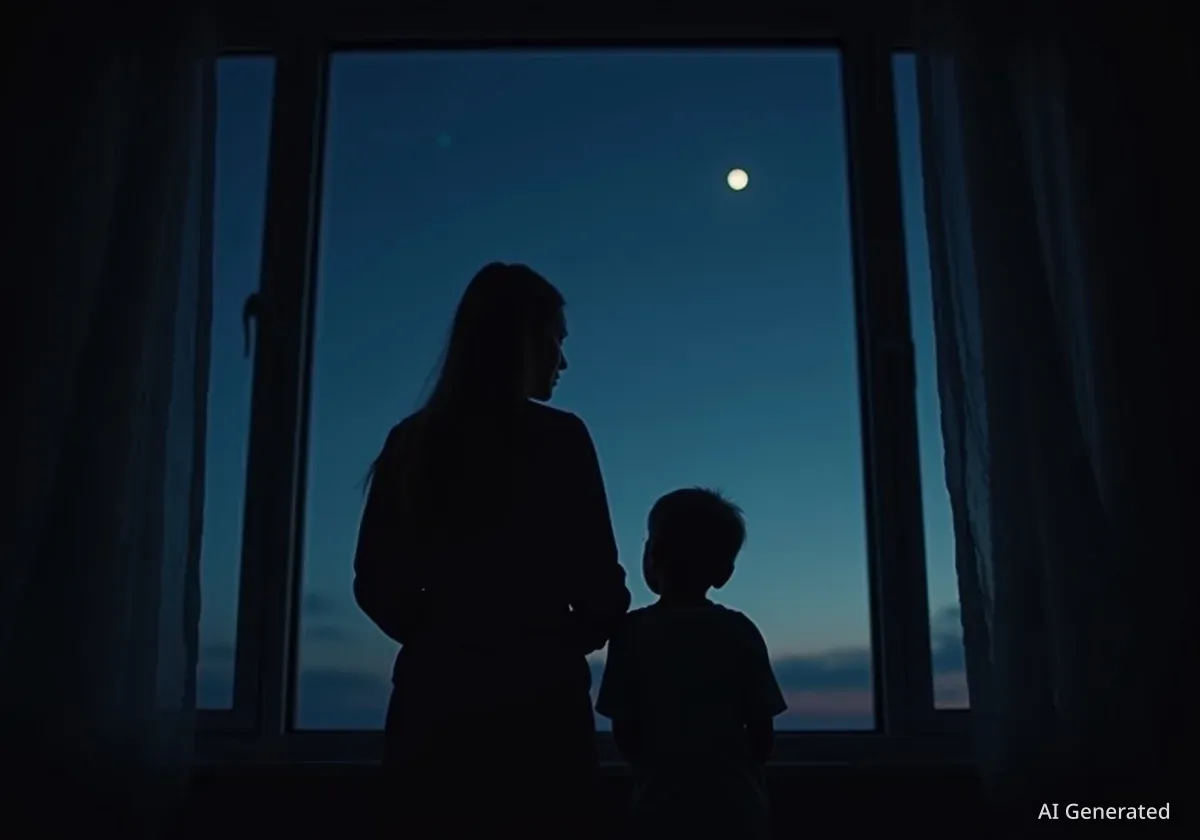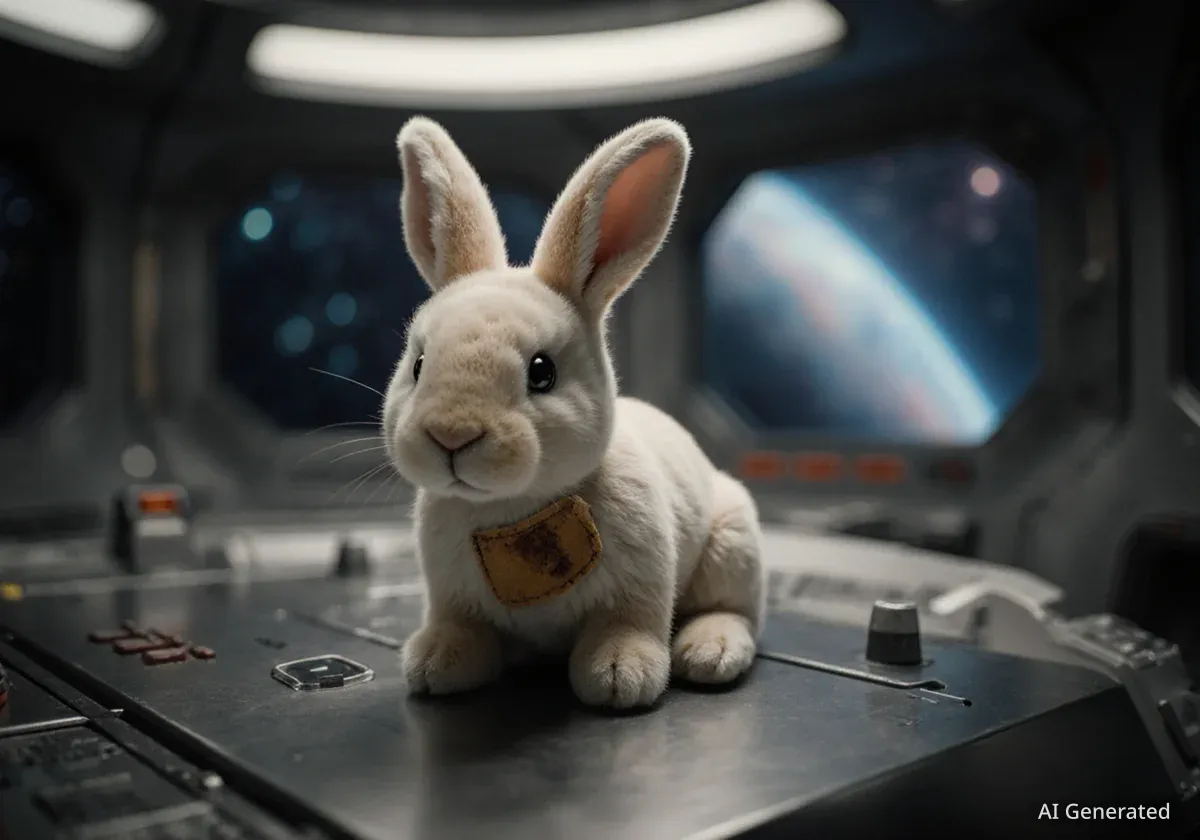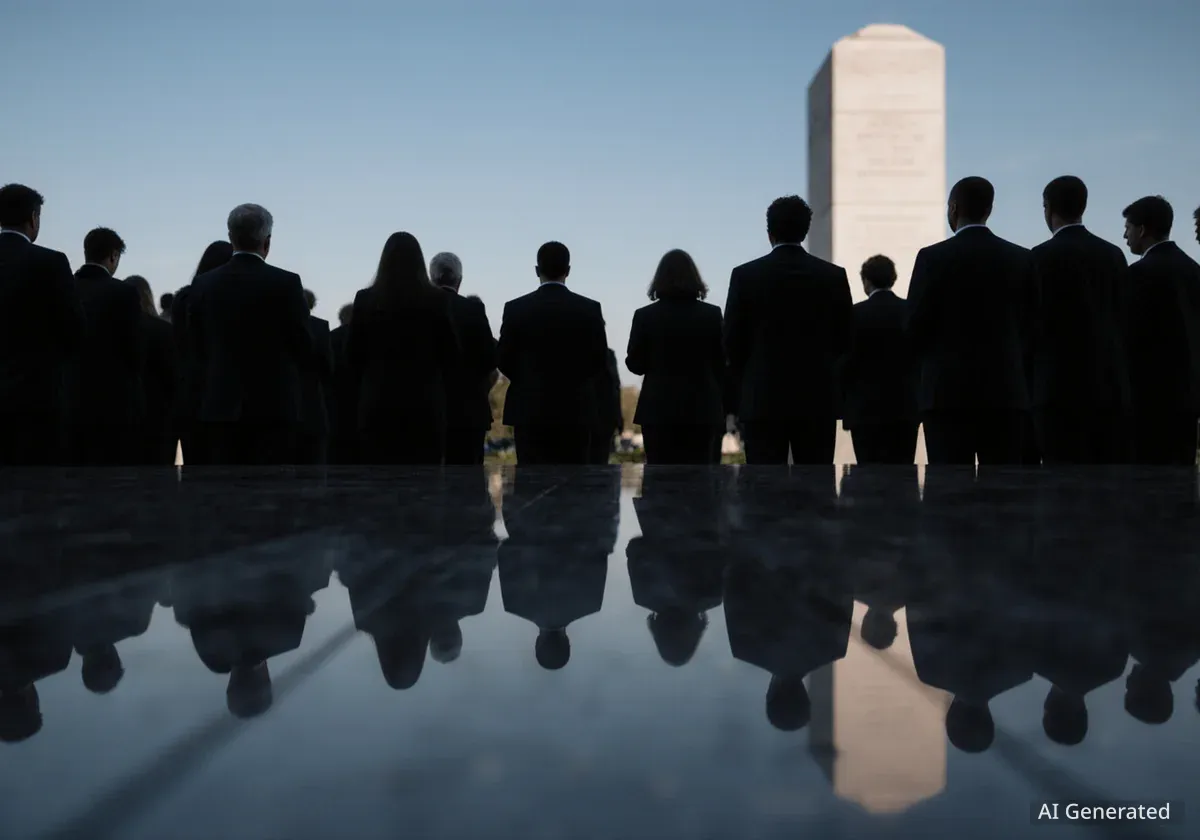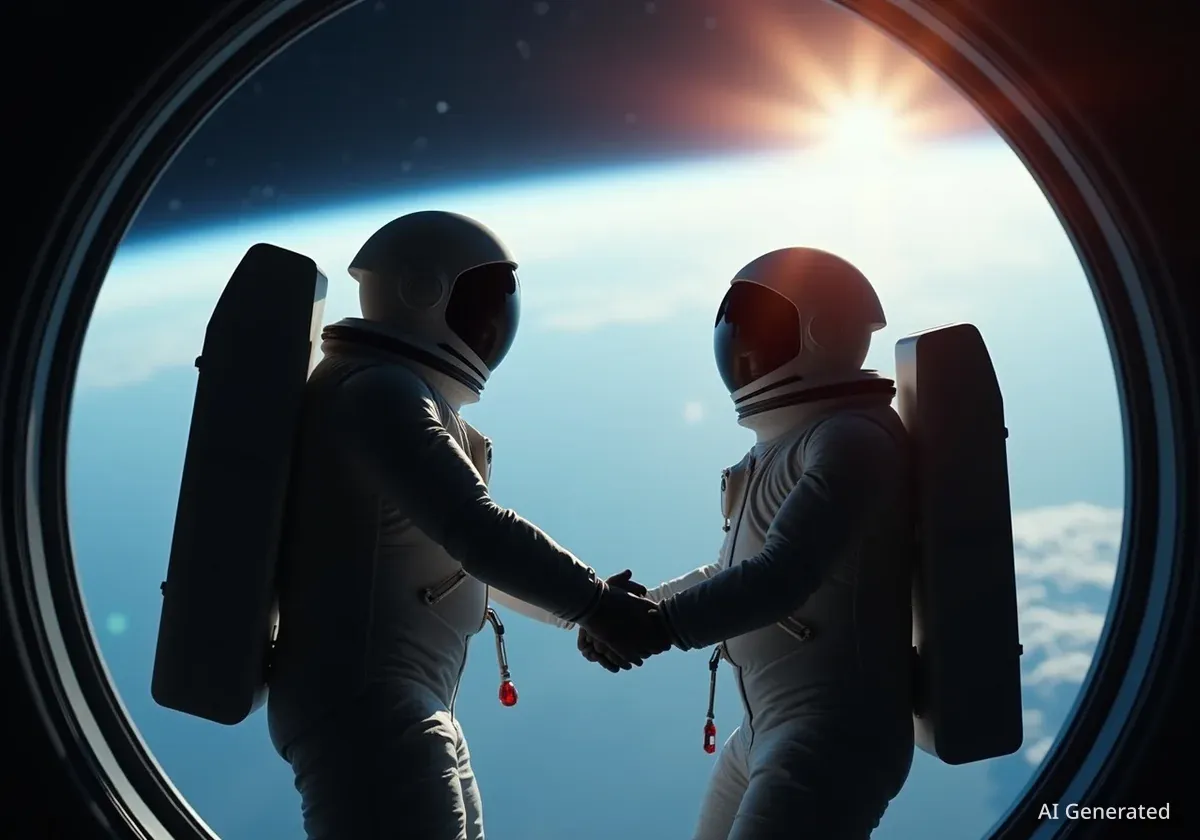The immense challenges of space travel are well-documented, but the profound impact on the families left behind on Earth is a less-explored frontier. For spouses and children of astronauts, missions involve long periods of separation, constant awareness of risk, and unique public pressures, creating a set of challenges that parallel those faced by military families.
Key Takeaways
- Astronaut families experience stresses similar to military families, including long-term separation and high-risk work environments for their loved ones.
- Unlike military deployments, astronaut missions are highly public events, meaning families often experience critical and dangerous moments simultaneously with the rest of the world.
- There is limited formal research on the long-term effects on astronaut families, with much of the current understanding based on anecdotal evidence and comparisons to military life.
- The rise of commercial space tourism introduces new dynamics, as families of private citizens may be less prepared for the associated stresses than those of career astronauts.
Parallels Between Space and Military Life
For families of astronauts, life often mirrors that of military households where a service member is on active duty. Both involve a parent or partner leaving for extended periods to perform a job associated with significant risk. This shared experience creates a common ground of emotional and logistical challenges for those managing life at home.
The constant underlying worry is a key similarity. Air Force Col. Catie Hague, whose husband Nick Hague was on a rocket that experienced a booster failure shortly after launch, described this state of mind in an interview with Military.com.
"Just like the military spouse feels every time they're deployed, you don't really know if something's going to happen. You just kind of live in vigilance the whole time."
This state of heightened awareness can become a baseline emotional state for the duration of a mission, requiring significant resilience from the family members on the ground.
The Well-Being of Children
While direct research on the children of astronauts is scarce, studies on military families offer valuable insights. A 2018 systemic review published in Child and Adolescent Psychiatry and Mental Health compared children from military and non-military backgrounds. It found that having a deployed parent could lead to a greater risk of certain adjustment issues, such as substance use.
However, the authors of the review concluded that, on the whole, the overall well-being of military and civilian children was not substantially different. The study also highlighted positive factors that can benefit the family structure.
Stabilizing Factors
According to research, the stable income and steady employment associated with military careers can be a protective factor for children. Lower socioeconomic status has been consistently linked to a higher likelihood of poor health outcomes in children.
A Uniquely Public Experience
Despite the similarities, there is a fundamental difference that sets astronaut families apart: the intensely public nature of spaceflight. Stacey Morgan, wife of U.S. Army Col. and astronaut Andrew Morgan, detailed this distinction in an article for the U.S. Army.
She explained that while military deployments are private, an astronaut's mission is a global media event. The family at home watches critical moments, from launch to landing, at the exact same time as millions of strangers around the world.
"The idea that we as a family are sharing these phenomenal yet perilous moments with the world, literally at the same time as we experience them for ourselves, can be unsettling," Morgan wrote.
This shared public-private experience adds a layer of stress that is unique to the families of space explorers, removing the privacy that typically surrounds a family's most anxious moments.
Adapting to the Demands of Space
Seeking Effective Support Models
Recognizing these unique pressures, experts are exploring ways to better support astronaut families. A 2023 article in the journal Space Policy proposed that a behavioral health program designed for military families could be adapted for the space community. The program, known as Families Overcoming Under Stress (FOCUS), helps families manage stress and build resilience.
The article also raised an important point about the future of space travel: the distinction between career astronauts and space tourists. The families of trained astronauts are generally accustomed to the occupational hazards. In contrast, the loved ones of paying space tourists may feel they "did not sign up for the stress and dangers" associated with the flight, creating a different set of psychological challenges.
Parenting from Orbit
Much of the current knowledge about family strain comes from anecdotal reports. The 2016 documentary "A Year in Space" offered a glimpse into astronaut Scott Kelly's relationships with his family during his extended mission on the International Space Station.
In an article for Today, astronauts Anne McClain and Nick Hague shared practical parenting advice. They emphasized the importance of:
- Being honest with children about the work and its risks.
- Creating meaningful family traditions before, during, and after a mission.
- Staying present and involved in daily life through regular communication.
Hague acknowledged the immense burden placed on the spouse at home. "A lot of the parenting — there is no way around it — it is going to fall on the shoulders of the spouse at home," he said. "Constant dialogue helps involve me."
Family Creation in the Astronaut Corps
The challenges extend to family planning. Commercial astronaut Kellie Gerardi has publicly shared her journey with in vitro fertilization (IVF) while preparing for space missions. Her experience highlights the unique demands on astronauts who are pregnant or plan to be, requiring careful scheduling around training and flights. Gerardi, who named her first daughter Delta after the space term Delta-V (change in velocity), is currently pregnant and has a second mission scheduled for 2026.
As humanity pushes further into space with longer missions and more commercial flights, understanding and supporting the families on the ground will be as critical to mission success as the technology that carries astronauts to the stars.




